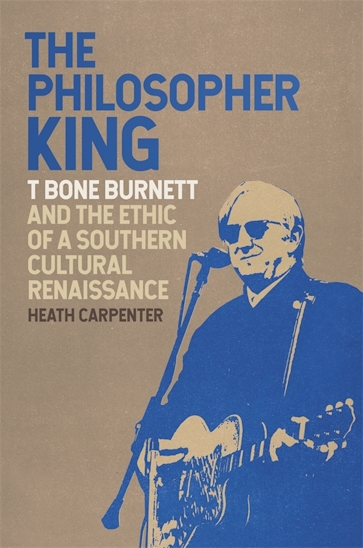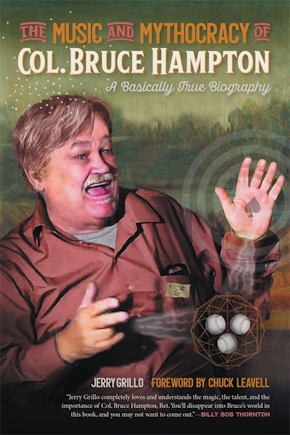The Philosopher King
T Bone Burnett and the Ethic of a Southern Cultural Renaissance
Title Details
Pages: 242
Trim size: 6.000in x 9.000in
Formats
Paperback
Pub Date: 06/01/2019
ISBN: 9-780-8203-5559-7
List Price: $29.95
eBook
Pub Date: 06/01/2019
ISBN: 9-780-8203-5560-3
List Price: $104.95
Hardcover
Pub Date: 06/01/2019
ISBN: 9-780-8203-5565-8
List Price: $104.95
Related Subjects
The Philosopher King
T Bone Burnett and the Ethic of a Southern Cultural Renaissance
How the “authentic” American South is interpreted and reimagined in pop culture
Skip to
- Description
- Reviews
Texas-born T Bone Burnett is an award-winning musician, songwriter, and producer with over forty years of experience in the entertainment industry. In The Philosopher King, Heath Carpenter evaluates and positions Burnett as a major cultural catalyst by grounding his work, and that of others abiding by a similar “roots” ethic, in the American South. Carpenter examines select artistic productions created by Burnett to understand what they communicate about the South and southern identity. He also extends his analysis to artists, producers, and cultural tastemakers who operate by an ethic and aesthetic similar to Burnett’s, examining the interests behind the preservationist/heritage movement in contemporary roots music and how this community contributes to ongoing conversations regarding modern southern identity.
The Philosopher King explores these artistic connections, the culture in which they reside, and most specifically the role T Bone Burnett plays in a contemporary cultural movement that seeks to represent a traditional American music ethos in distinctly Southern terms. Carpenter looks at films, songs, soundtracks, studio albums, fashion, and performances, each loaded with symbols, archetypes, and themes that illuminate the intersection between past and present issues of identity. By weaving together ethnographic interviews with cultural analysis, Carpenter investigates how relevant social issues are being negotiated, how complicated discussions of history, tradition, and heritage feed the ethic, and how the American South as a perceived distinct region factors into the equation.
—Ana Marquez, Taylor & Francis Online



